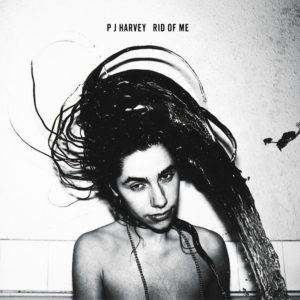[Patreon-Nov16-Post-Bug][/Patreon-Nov16-Post-Bug]This is where the choices are going to get really painful for me. I have a dozen favorite songs from 1993, at least.
 Ace of Base’s “The Sign” and how it marked the end of my pop music fandom for the better part of a decade. Janet’s genre-bending “If” full of sex and squalling guitars. “River of Dreams” and the one time I could connect with my father over a piece of current music. Sheryl Crow’s Tuesday Night Music Club, a front to back listenable record that is so obviously the work of a collective of songwriters rather than a singular voice.
Ace of Base’s “The Sign” and how it marked the end of my pop music fandom for the better part of a decade. Janet’s genre-bending “If” full of sex and squalling guitars. “River of Dreams” and the one time I could connect with my father over a piece of current music. Sheryl Crow’s Tuesday Night Music Club, a front to back listenable record that is so obviously the work of a collective of songwriters rather than a singular voice.
Juliana Hatfield, Liz Phair… I can keep going.
But, if we are going to talk about songs that really changed my whole damn life, we need to be talking about Polly Jean Harvey’s breakthrough album, Rid of Me.
All of it.
I didn’t come around to Harvey until a few years after Rid of Me, when I saw Tracy Bonham cover her “50ft Queenie.” Being a voracious consumer of female-vocal rock, it didn’t take much to convince me to head down to Borders to pick up the album that contained the original.
I was not prepared for what I heard. Rid of Me is a powerful and at-times terrifying album. This had all the rawness of Hole but the measured perfection of Tori Amos. It had guttural strength that stood up to anything on In Utero and spectral power that made it seem like a spiritual sister to Bjork’s Debut. While many fans and critics prefer her To Bring You My Love, the raw power of Steve Albini-produced Rid of Me remains her seminal work in this household.
I can’t pick just one song to highlight, so let’s just talk about half the record.
“Missed” never fails to stun me. It’s a lost track from Jesus Christ Superstar, Mary’s lament to a lost Jesus kept away in a tomb after Mary Magdelene insisting “Everything’s Alright.” It’s beautiful – takes my breath away on every play even after listening to it for 20 years.
The biblical theme continues on Bob Dylan’s famous “Highway ’61 Revisited,” the title track of his 1965 record.
Oh, God said to Abraham, “Kill me a son”
Abe said, “Man, you must be puttin’ me on”
Who on their second album decides to take a mid-record break to cover Dylan’s strutting country-rock paean to the famous road as a squalling, foreboding rock song? The Dylan original and faithful covers sound trite next to this muscular, paranoid version. The surging power chords, the surprisingly nuanced drumming, the jangling single note riff.
I’ve always felt this ought to be the credits tune to an adaptation of The Stand, with its depiction of God sparing Abraham’s son at the start to a roving gambler trying to start the next world war just to see if god would stop him in the final stanza.
(Note: This starts and stays very quiet for the first minute.)
“Man-Size” is a gender dysphoric balled fist, doing anything to evict the woman from a body that feels and acts like a man’s, the body horror of it deepened by a brilliant Hitchcockian string sextet version that casts it as the theme song to Psycho:
Silence my lady head
Get girl out of my head
Douse hair with gasoline
Set it light and set it free
“Dry,” a footnote that I’ll always love – the title song of a previous LP held over to the next one. “I caught it in my face,” she confesses – another time she was too brave or stupid to flinch.
You’ve come all this way
No hair out of place
You put it on the stage
You put right in my faceYou leave me dry. You leave me dry. You leave me dry.
Rather than a seething kiss-off, crackling at the edges like the rest of the songs on the record, “Dry” stays almost cheerful through its relentless thirst. He’s always throwing it in her face, but it’s never worth a damn. Or, maybe she’s a vampire and she can never be sated.
And, finally, the song that brought me to the record, “50ft Queenie.” It’s practically PJ Harvey’s theme song, which makes it all the more queer that Tracy Bonham had the guts to cover it. I’ve always read it as being so strong a woman that everyone makes a sideshow out of you, because sometimes if you embrace the mockery someone is trying to make out of you, you wind up owning the myth.
Rid of Me arrived in my CD Walkman just as I was starting to write my own songs, and the influence of these plain, underdressed tunes reverberates heavily across my early writing. Every note of these songs, of “Rid of Me” and “Ecstasy” and everything between is traced across those early tunes.
I was a naive writer trying to capture Harvey’s rawness without the pain to fuel it, and the songs come off obtuse and embarrassing now while hers are still cloaked in beautiful metaphor. It doesn’t matter. I had to write those songs to get to the good ones, and I would have never written them without Rid of Me.
Whether you know this album well or not, Spin’s Oral History of Rid of Me is a must read as a follow-up to this post.